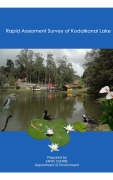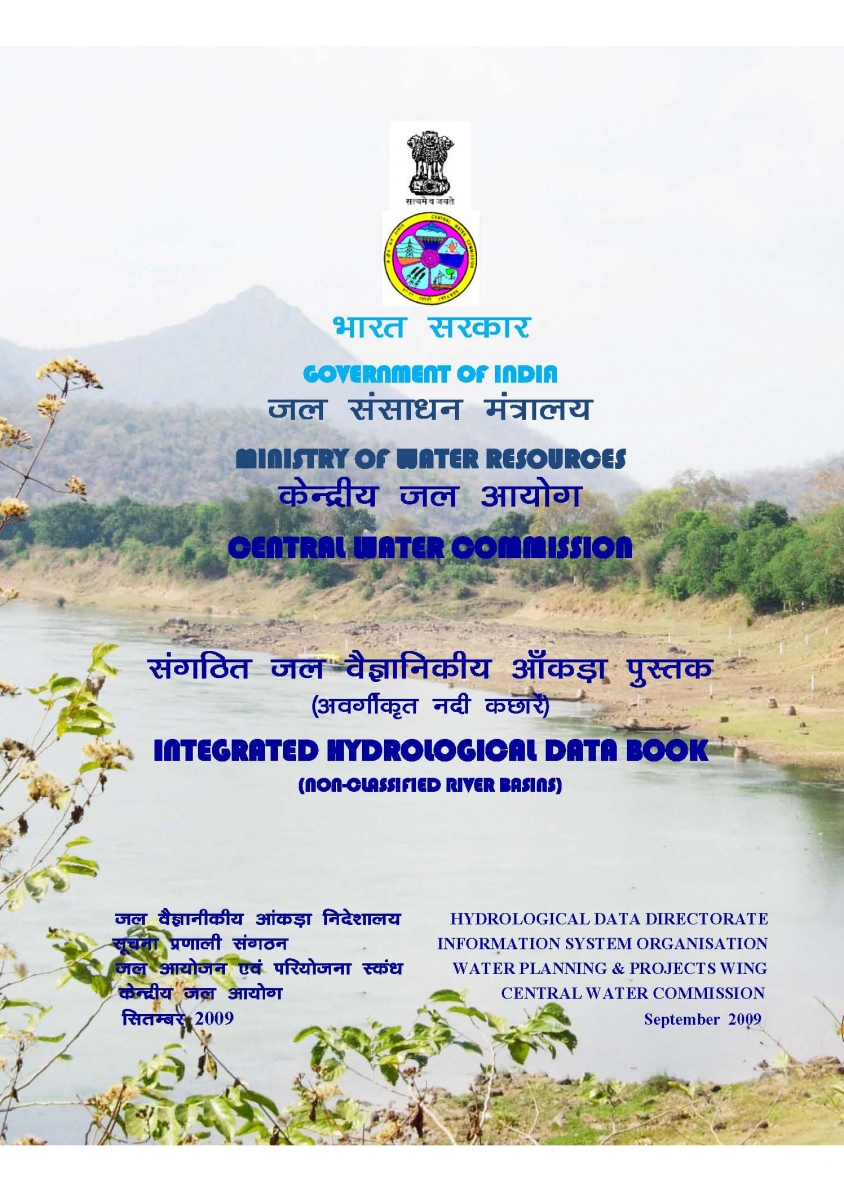Governance
Rapid assessment survey of Kodaikanal lake - ENVIS Centre (TN) (2009)
Posted on 02 Aug, 2010 02:02 AM This document by the Department of Environment, Government of Tamil Nadu highlights the importance of the Kodaikanal lake as an important tourist destination and warns that this freshwater lake is under the threat of getting polluted and its biodiversity endangered.
This document by the Department of Environment, Government of Tamil Nadu highlights the importance of the Kodaikanal lake as an important tourist destination and warns that this freshwater lake is under the threat of getting polluted and its biodiversity endangered.
The document presents the findings of the study that aimed at assessing the physico-chemical and biological quality of the Kodaikanal lake.
Evidence indicates that unrestricted tourism activities have led to high use of plastic bottles, glass bottles, plastic bags, causing high levels of pollution and silting of the lake. Damaged fibreglass boats left inside the lakes also pose a serious threat to the lake ecosystem.
National Rural Drinking Water Programme - Framework for implementation - MoRD (2010)
Posted on 02 Aug, 2010 01:46 AMThe Government of India launched the Accelerated Rural Water Supply Programme (ARWSP) in 1972-73 to ensure provision of adequate drinking water supply to the rural community through the Public Health Engineering System.
The second generation programme started with the launching of Technology Mission in 1986-87, renamed in 1991-92 as Rajiv Gandhi National Drinking Water Mission. Stress on water quality, appropriate technology intervention, human resource development support and other related activities were introduced in the rural water supply sector.
The third generation programme started in 1999-2000 when sector reform projects evolved to involve community in planning, implementation and management of drinking water related schemes, later scaled up as Swajaldhara in 2002.
The Rural Water Supply (RWS) sector has now entered the fourth phase with major emphasis on ensuring sustainability of water availability in terms of potability, adequacy, convenience, affordability and equity while also adopting decentralized approach involving PRIs and community organizations.
Decentralisation and water resources management in the Indian Himalayas: The contribution of new institutional theories - Conservation and Society paper
Posted on 02 Aug, 2010 01:31 AMThis paper discusses the relevance of the process of decentralisation in water resources management. The paper argues that decentralisation is not about formulating a top-down reform package to transfer power from central government to other actors to manage water resources, nor is it about emphasising the existence of the bottom up agency.
Rather, the paper draws on "New Institutionalism" and argues that decentralisation is a complex adaptive process that involves natural as well as political actions of actors and agents who draw on existing structures to negotiate and renegotiate the existing unequal power relations to manage water.
Climate change in India: Forgotten threats, forgotten opportunities - EPW paper
Posted on 02 Aug, 2010 01:12 AMThe document begins by commenting on the position taken by India in the global climate change discourse. India has consistently argued from the point of view of developing countries against restrictions on emissions that have been imposed on all countries globally, by stating that developing countries have started the industralisation processes recently and thus have contributed very little to the carbon emissions.
Thus, countries like India should not sacrifice their present development and growth for reducing global emissions. Any legitimate climate mitigation initiative should be just, equitable and secure developing countries' growth patterns.
The document argues that although India 's stand seems justifiable in the global discourse, the climate change issue is still a very sensitive one for India and India has the greatest to lose if it does not take proactive steps to deal with the issue of climate change in the future.
Salvaging and scapegoating: Slum evictions on Chennai’s waterways - EPW paper
Posted on 02 Aug, 2010 01:03 AMThe paper highlights the case of recent projects that have been planned on the river Cooum in Chennai.
Water sector and reforms - Report of workshop organised by CASUMM (2007)
Posted on 02 Aug, 2010 12:08 AMThe workshop was organised in response to the implementation of two water supply projects in Bangalore and Mysore as a part of the Water Sector Reforms under the Jawaharlal Nehru National Urban Renewal Mission (JNNURM) and the increasing trend of privatisation under the water sector reforms in cities like Bangalore and Mysore.
It was felt that there was a need to raise awareness among citizens and groups in Bangalore and Mysore regarding the implications of privatisation and the mechanisms through which privatisation was being introduced in the cities in India.
K-East Ward Mumbai Water Distribution Improvement Project (WDIP): FAQs compiled by CASUMM
Posted on 01 Aug, 2010 03:58 PMThis document by Collaborative for the Advancement of the Study of Urbanism through Mixed Media (CASUMM) provides details about the K-East Water Distribution Improvement Project (WDIP) started in Mumbai, in the form of FAQs.
It argues that the very way in which the project is being planned and implemented, indicates that the agenda of the donor organisations is to gradually push for the privatisation in the water sector.
Water distribution improvement "World Bank style" in K-East Ward Mumbai - A working paper by CASUMM
Posted on 01 Aug, 2010 03:43 PMIn this document by CASUMM, the author raises important questions regarding the recent trends towards privatisation of water supply in Indian cities by discussing the case of the water supply scheme project in the K-east ward of Mumbai.
The privatisation of the water supply scheme, which has been implemented through grants by the World Bank (WB) raises serious questions regarding the intentions of the international organisations that fail to take into consideration the local context and the needs of the people and focus exclusively on profit making.
Water challenges in Greater Bangalore - NIAS-CASUMM workshop note (2007)
Posted on 01 Aug, 2010 03:36 PMThis document provides the background for a workshop on 'Water Challenges in Greater Bangalore', organised by NIAS and CASSUM at the National Institute of Advanced Studies (NIAS), Indian Institute of Science (IISC) campus on March 27, 2007.
The document highlights the current scenario of privatisation of water services that are being funded by international financial institutions under the water sector reforms in the city of Bangalore, which have had a very negative impact on the urban poor, who continue to face the problem of inadequate, unreliable and unsafe water supply as compared to other posh and water rich areas in the city.
Integrated Hydrological and Water Data Books - Central Water Commission (2005-09)
Posted on 01 Aug, 2010 12:52 AM Integrated Hydrological Data Books are a compendium of important hydrological information of twelve non-classified basins (i.e., other than Ganga and Brahmaputra) consolidated at the national level by the Central Water Commission (CWC).
Integrated Hydrological Data Books are a compendium of important hydrological information of twelve non-classified basins (i.e., other than Ganga and Brahmaputra) consolidated at the national level by the Central Water Commission (CWC).
It covers basic hydrological data on gauge, discharge, silt, sedimentation and water quality collected on a regular basis by the CWC regional field offices, who document it in the form of a Water Year Book, Sediment Year Book and Water Quality Year Book. These along with the relevant land use statistics collected by the Ministry of Agriculture are integrated into this Data Book.
The information is of use to planners, researchers, policy makers and the public at large.





